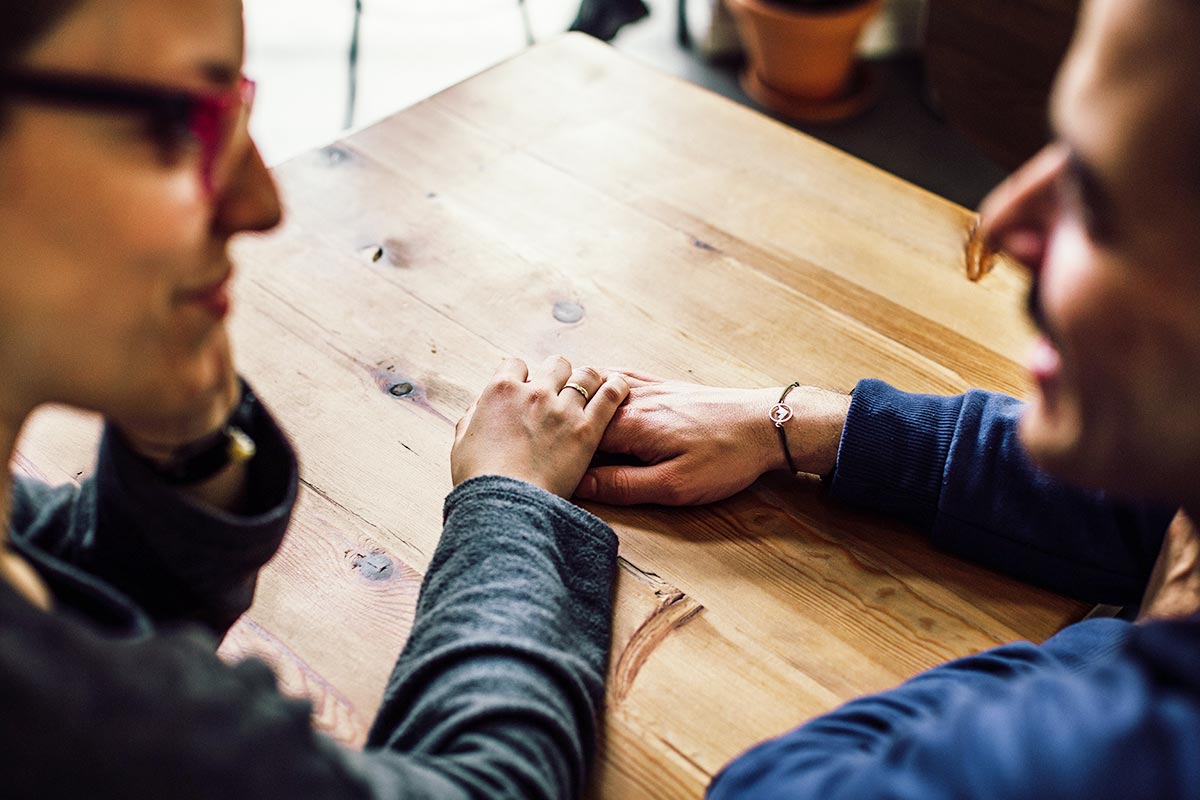Most people leaving rehab are told not to date for the first year. That’s often connected to the challenges of dating non-sober people, like the fact that your schedule and life are very structured, that romance is a distraction, and that you’ll have to work around being triggered. But, what if the person you’re interested in is also in recovery? Would it help you to recover by helping you to build good habits and by having someone to share recovery with? Or would it detract from recovery by putting you in a place where you’re not focusing on yourself and where you’re building your habits on someone else?
Unfortunately, most professionals indicate that the latter scenario is more likely. It’s still never a good idea to date someone in early recovery. You need time to focus on yourself and your growth. This will be a turbulent period in your life. And, if you follow the traditional trajectory, you should be keeping a plant alive for 6 months before you should even be getting a pet – let alone a relationship.
This article will go into the details of why it’s a bad idea to date someone in early recovery, even if they are also in recovery.
Love Chemically Mimics Addiction
The reward circuit is the response of the brain to “positive” behavior that makes you feel good. In the case of positive social interactions like love, the reward circuit involves the production of serotonin, dopamine, and oxytocin. Those neurotransmitters and hormones are incidentally the same that result in highs when taking drugs and alcohol, and the same that result in behavioral dependency. Professionals warn patients in early recovery away from sugar and caffeine because they produce these in the same ways – but falling in love can be just as bad as relying on sugary and caffeinated beverages. Those highs can be difficult to replace once the new relationship wears off and a breakup can cause you to crash and relapse.
In fact, that emotional and chemical response of feeling good usually lasts for about 3-6 months, after which, it goes away. So, you’ll be setting up a difficult period in your life if you start dating in early recovery. When that crashes, it can be very hard on your actual recovery.
You Need Your Own Habits
Recovery is about building good habits and improving your self-trust, self-esteem, and ability to do things on your own. Having a partner to do things with can certainly help to make those routines and habits more pleasant. It’s much nicer to go to the gym four days a week if you have a partner and to meal prep and eat healthy wit your partner. However, if you lose that partner, building habits on another person can mean losing those habits as well. Suddenly, everything you did that’s good for you and that helps you to stay clean and sober becomes hurtful because it reminds you of your partner. That can be intensely problematic for your long-term health.
You Have to Focus on Yourself
If you’re in early recovery, you need to focus on yourself. That means going to counseling, building up habits, working on your goals, and spending time doing the work to recover. If you’re just getting into a relationship, you want to spend time with your partner. That can be extremely difficult to navigate and to prioritize, because emotions push you to spend time on your partner rather than on yourself. It’s possible that you could manage this in a healthy way and spend enough time on yourself. However, it’s also extremely difficult, so risks are high.
For most of us, the first year of recovery is about therapy, counseling, building support networks, learning new skills, building routine and habits, and remediating mistakes you made while addicted. That can greatly impact your relationship and your relationship can greatly impact your ability to focus on those goals.
You Can’t be Good Partners
Addiction is a mental health and behavioral disorder that impacts how you’re able to engage with the world and the people around you. Substance abuse impacts your social behavior, how you prioritize others, and even how you feel. Many people experience emotional blunting for the first year after recovery. In addition, you might have problems with emotional ups and downs, impulsivity, sensation seeking, and being needy. All of that can negatively impact your relationship, even if just one of you is in that state. If your partner is also in recovery, you’ll double the issues, and you will likely have a very turbulent relationship as a result.
Behaving in an emotionally sensitive, mature, and stable way is difficult even at the best of times. However, if you’re actively going through a turbulent time, it will be much worse. If you’re not in a mental space that allows you to be a good partner, you should focus on taking the steps to get into that space before starting a relationship.
You’re Still Figuring Out Who You Are
Most of us are aware that addiction changes us. But, then we go to recovery with the idea of becoming the person we were before. That’s never going to be the case. Instead, you’ll have a long period of figuring out who you are now, why, and what you want to do with that. Getting into a relationship can make too much off that about another person, even if they are going through the same process. The result can be that you don’t know what you want or how to communicate it, essentially putting your recovery on hold.
Saying no to a relationship can be difficult and even painful. If you’ve met someone at rehab, in self-help groups, or somewhere else, you’ve met someone and you’re already experiencing emotions. Backing away from that can be difficult. However, it is in both of your best interests to wait, hopefully at least a year after recovery. You can be upfront and ask them to wait. You can talk about how you’d like to focus on recovery first and then after a year you’d be very open to dating them – and you hope they feel the same. Chances are, that won’t work out, but it might. Being able to go “I am not ready, and I’d like to be a good partner for you, so I’m going to wait”, is also an important part of recovery and recognizing your own limitations. It’s an act of choosing your own recovery and of choosing to put yourself in a good place before taking on more.
Good luck with your recovery.
Stairway Recovery Homes has multiple sober living homes located in Los Angeles, CA. We provide community-based recovery homes for both men’s sober living and women’s sober living. Recovery IS possible!




